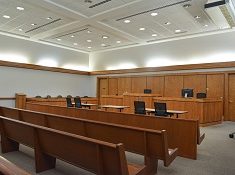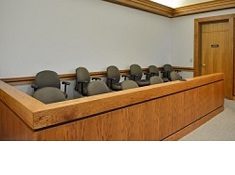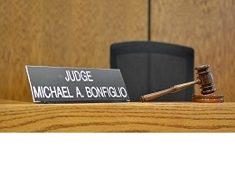The judgment debtor examination is the court’s way of helping judgment creditors learn about the judgment debtor’s assets … information which then can be used to collect the judgment.
Mail Exam
In addition to the standard judgment debtor exam available to all judgment creditors, small claims court has an additional, simplified process that may save considerable time. You may wish to try this before moving to the more time-consuming judgment debtor hearing process:
- Wait 30 days after the judgment.
- Go to the Clerk’s office and ask for a by-mail judgment debtor exam. This will cost you $5.
- The Clerk will mail this form to the judgment debtor, asking for a list of his/her assets, liabilities and personal earnings.
- The judgment debtor will be given one week to return that information to the Clerk’s office. He/she will be informed that failure to respond within that week could result in a charge of contempt of court.
- To obtain the judgment debtor’s exam answers, you will have to visit the Clerk’s office sometime after the week deadline.
- If the judgment debtor fails to return the exam to the Clerk’s office, they will issue a notice for the defendant to appear before the Judge.
Personal Exam
While the mail process may be more convenient, you may find that the information you receive is not specific or complete enough to enable you to proceed with collection. This is a formal judgment examination, where you get the court to enforce the judgment debtor to attend a hearing and answer your questions:
- Forms are available in the Clerk’s office. Cost of filing is $25.
- The Clerk will assign an appearance date. You will need to be present at this assigned date and time.
- The bailiff will serve this notice on the defendant personally. You will be notified if service cannot be made.
- If the judgment debtor is served but fails to appear, you may ask the court to issue an arrest warrant (as long as you can supply the court with his/her date of birth and Social Security number).
- When the debtor appears, you will have the right to ask any questions needed to determine where you might find enough assets to pay your judgment. You should have your questions ready in advance to determine the following:
- Place of employment and identity of employer
- Take-home pay amount
- Bank accounts (name of bank and account number) and amount in them
- Location of any land or houses owned
- Make, model, year, license and title number of any cars owned and amount owed a bank or loan company
- Address of any rental property owned and identity of tenants
- The debtor will be under oath, but not on a witness stand. You will be seated at a table and will simply ask your questions and write down the answers.
- If you believe the debtor is lying or the debtor refuses to answer your questions, you will notify the Clerk. The case will then be taken into court before the Judge. This is sometimes needed to persuade the debtor to cooperate.
- Once you have obtained your information, you can then proceed to use the various collection approaches that are outlined.




